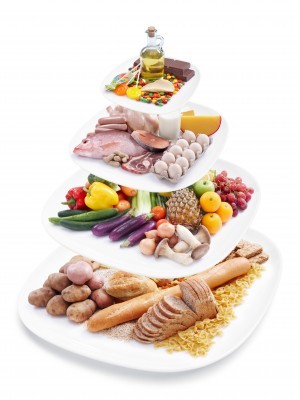
Overweight/obese, “breakfast skipping,” teen girls who ate a high-protein breakfast reduced their unhealthy snacking later in the day, U.S. researchers say.
Heather Leidy of the University of Missouri said the study involved 20 overweight or obese adolescent females ages 18-20 who either skipped breakfast, consumed a high-protein breakfast consisting of eggs and lean beef, or ate a normal-protein breakfast of ready-to-eat cereal. Each breakfast consisted of 350 calories and was matched for dietary fat, fiber, sugar and energy density, but the high-protein breakfast contained 35 grams of protein, Leidy said.
Study participants completed questionnaires and provided blood samples throughout the day. Prior to dinner, functional magnetic resonance imaging brain scans were performed to track brain signals that control food motivation and reward-driven eating behavior, Leidy said.
The study, published in the American Journal of Clinical Nutrition, found the consumption of the high-protein breakfast led to increased fullness or “satiety” along with reductions in brain activity responsible for controlling food cravings.
The high-protein breakfast also reduced evening snacking on high-fat and high-sugar foods, the study said.
“Eating a protein-rich breakfast impacts the drive to eat later in the day, when people are more likely to consume high-fat or high-sugar snacks,” Leidy said in a statement. “These data suggest that eating a protein-rich breakfast is one potential strategy to prevent overeating and improve diet quality by replacing unhealthy snacks with high quality breakfast foods.”
Funding for the research was provided by the Beef Check-off and the Egg Nutrition Center/American Egg Board. (UPI)
<관련 한글 기사>
군것질 줄이려면 아침에 ‘이것’ 먹어야!
미 연구진들은 주로 아침을 거르던 과체중, 혹은 비만인 여학생들이 고단백 아침식사를 했을 경우 하루 동안 간식을 덜 먹게 됐다는 연구 결과를 내놨다.
미주리 대학 헤더 레이디 교수는 과체중이거나 비만인 18세에서 20세 이상의 여성 20명을 세 그룹으로 나누어, 첫번째 그룹은 아침식사를 거르게 하고, 두번째 그룹은 기름기를 뺀 소고기와 계란이 포함된 고단백 아침식사를, 마지막 그룹은 시리얼과 같은 일반적인 아침식사를 제공했다.
각각의 아침식사는 350 칼로리 정도였고, 단백질을 제외하고는 비슷한 양의 영양소를 포함하고 있었다.
식사 후 연구지들을 참가자들을 대상으로 설문조사를 했고, 혈액 샘플을 채취했다.
또한 식욕을 관장하는 뇌파를 추적하기 위해 기능적 자기 공명 영상을 이용해 저녁 식사 전 참가자들의 뇌의 영상을 찍었다.
연구 결과, 고단백 아침식사는 포만감을 증가시키고, 식욕을 관장하는 뇌의 활동을 줄이는 것으로 나타났다.
연구진들은 아침에 고단백 식사를 하면, 오후에 고당분, 고지방의 간식을 덜 먹게 되고, 따라서 과식을 하지 않게 되며, 건강한 식단을 가질 수 있게 된다고 밝혔다.
이 연구는 미국 ’클리니컬 뉴트리션’지에 실렸다. (코리아 헤럴드)
Heather Leidy of the University of Missouri said the study involved 20 overweight or obese adolescent females ages 18-20 who either skipped breakfast, consumed a high-protein breakfast consisting of eggs and lean beef, or ate a normal-protein breakfast of ready-to-eat cereal. Each breakfast consisted of 350 calories and was matched for dietary fat, fiber, sugar and energy density, but the high-protein breakfast contained 35 grams of protein, Leidy said.
Study participants completed questionnaires and provided blood samples throughout the day. Prior to dinner, functional magnetic resonance imaging brain scans were performed to track brain signals that control food motivation and reward-driven eating behavior, Leidy said.
The study, published in the American Journal of Clinical Nutrition, found the consumption of the high-protein breakfast led to increased fullness or “satiety” along with reductions in brain activity responsible for controlling food cravings.
The high-protein breakfast also reduced evening snacking on high-fat and high-sugar foods, the study said.
“Eating a protein-rich breakfast impacts the drive to eat later in the day, when people are more likely to consume high-fat or high-sugar snacks,” Leidy said in a statement. “These data suggest that eating a protein-rich breakfast is one potential strategy to prevent overeating and improve diet quality by replacing unhealthy snacks with high quality breakfast foods.”
Funding for the research was provided by the Beef Check-off and the Egg Nutrition Center/American Egg Board. (UPI)
<관련 한글 기사>
군것질 줄이려면 아침에 ‘이것’ 먹어야!
미 연구진들은 주로 아침을 거르던 과체중, 혹은 비만인 여학생들이 고단백 아침식사를 했을 경우 하루 동안 간식을 덜 먹게 됐다는 연구 결과를 내놨다.
미주리 대학 헤더 레이디 교수는 과체중이거나 비만인 18세에서 20세 이상의 여성 20명을 세 그룹으로 나누어, 첫번째 그룹은 아침식사를 거르게 하고, 두번째 그룹은 기름기를 뺀 소고기와 계란이 포함된 고단백 아침식사를, 마지막 그룹은 시리얼과 같은 일반적인 아침식사를 제공했다.
각각의 아침식사는 350 칼로리 정도였고, 단백질을 제외하고는 비슷한 양의 영양소를 포함하고 있었다.
식사 후 연구지들을 참가자들을 대상으로 설문조사를 했고, 혈액 샘플을 채취했다.
또한 식욕을 관장하는 뇌파를 추적하기 위해 기능적 자기 공명 영상을 이용해 저녁 식사 전 참가자들의 뇌의 영상을 찍었다.
연구 결과, 고단백 아침식사는 포만감을 증가시키고, 식욕을 관장하는 뇌의 활동을 줄이는 것으로 나타났다.
연구진들은 아침에 고단백 식사를 하면, 오후에 고당분, 고지방의 간식을 덜 먹게 되고, 따라서 과식을 하지 않게 되며, 건강한 식단을 가질 수 있게 된다고 밝혔다.
이 연구는 미국 ’클리니컬 뉴트리션’지에 실렸다. (코리아 헤럴드)



















